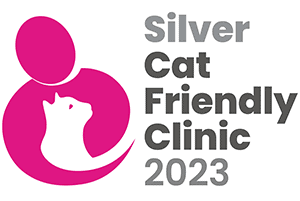Information on Pet Travel Post-Brexit
Pet travel after 31st December 2020
Following the UK’s departure from the EU on 31st December 2020, there were changes made to the procedure required to take pets abroad.
This guidance applies to people travelling to the EU and Northern Ireland (NI) with their pet cats, ferrets or dogs, including assistance dogs.
Great Britain (England, Scotland and Wales), including the Channel Islands and Isle of Man, will become a Part 2 listed third country under the EU Pet Travel Scheme from 1 January 2021.
Travelling to the EU or NI with your pet
A current EU pet passport issued in GB will not be valid for travel to the EU or NI from 1 January 2021.
Before your dog, cat or ferret can travel to the EU or NI for the first time after 1 January 2021, you’ll need to take the following steps. These steps are similar to the current process for taking your pet to the EU, but you’ll need an animal health certificate (AHC) instead of a pet passport.
You must have your dog, cat or ferret microchipped.
Vaccinate your dog, cat or ferret against rabies – your pet must be at least 12 weeks old before it can be vaccinated.
Wait 21 days after the primary vaccination before your animal health certificate (AHC) can be issued.
Visit your vet to get an AHC for your pet, no more than 10 days before travel to the EU.
Find out more about rabies vaccination boosters and blood tests.
As long as you keep your pet’s rabies vaccinations up to date, you will not need to get repeat vaccinations for repeat trips to the EU or NI.
Getting an Animal Health Certificate (AHC)
You must also take your pet to your vet no more than 10 days before travel to get an AHC.
The AHC needs to be signed by an official vet. Check with your vet that they can issue AHCs for pets.
You must take proof of:
- your pet’s microchipping date
- your pet’s vaccination history
Your pet’s AHC will be valid for:
- 10 days after the date of issue for entry into the EU or NI
- onward travel within the EU or NI for 4 months after the date of issue
- re-entry to GB for 4 months after the date of issue
Travelling to Finland, Republic of Ireland, NI, Norway or Malta
If you’re travelling with your dog directly to Finland, Republic of Ireland, NI, Norway or Malta, it must have treatment against tapeworm (Echinococcus multilocularis). Your dog will need to receive treatment 1 to 5 days before arriving in any of these countries. Your vet must enter full details on the AHC following treatment.
Arriving in the EU or NI
On arrival in the EU or NI, pet owners travelling with pets will need to enter through a designated travellers’ point of entry (TPE).
At the TPE, you may need to present your pet’s original AHC along with proof of:
- your pet’s microchip
- rabies vaccination
- tapeworm treatment (if required)
Check the rules of the country you’re travelling to for any additional restrictions or requirements before you travel. Read the travel advice: coronavirus (COVID-19) guidance before travelling overseas.
Repeat trips to the EU or NI
Your pet will need a new AHC for each trip to the EU or NI.
To get a new AHC, you must take your pet to an official vet no more than 10 days before you travel. You must show proof of your pet’s:
- microchipping date
- rabies vaccination history
If your pet has an up-to-date subsequent rabies vaccination history, it will not need a repeat rabies vaccination before travelling again.
You’ll need tapeworm treatment if you’re travelling to Finland, Republic of Ireland, NI, Norway or Malta.
Returning to the UK from the EU or NI
Please remember that your pet will require a tapeworm treatment, administered by a Veterinary Surgeon, in the period 24-120hours before your return to the UK.
Travel diseases
Apart from rabies, your pet is at risk of other disease while abroad including Leishmaniosis, which is transmitted by sand flies to dogs. Heartworm, as the name suggests, is a parasitic worm which lives in the heart of the animal while Babesiosis, Ehrlichiosis are both tick-borne diseases.
Prevention is always better than cure so please talk to us if you are going abroad, and we will advise on the best course of action.
Please see our page on ‘parasite control’
DEFRA INFORMATION
Please contact DEFRA for more information to prevent any problems at the border.
For more information please contact DEFRA or the Gov.UK website about pet travel.



